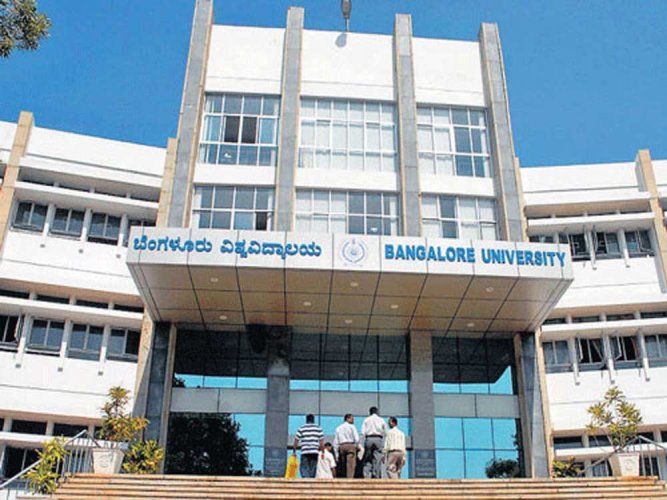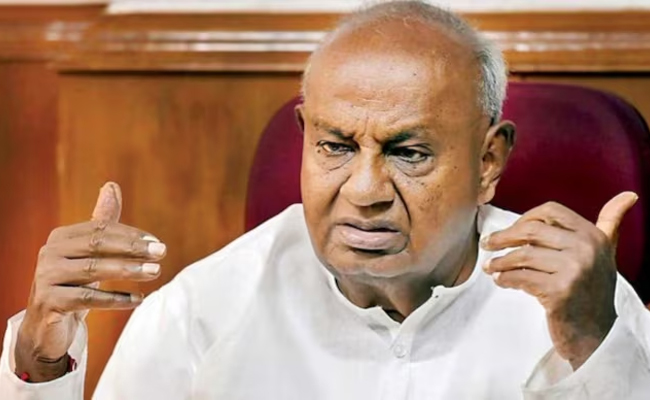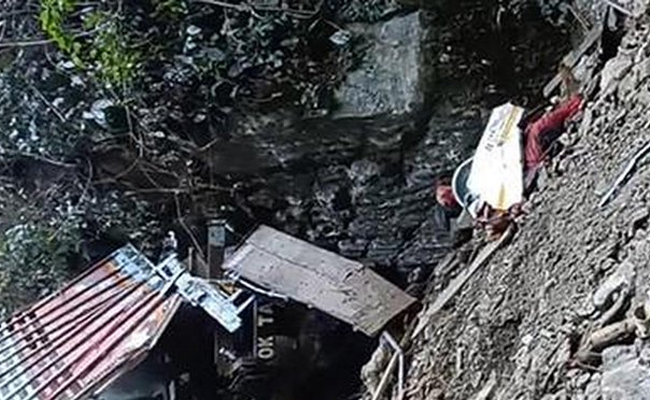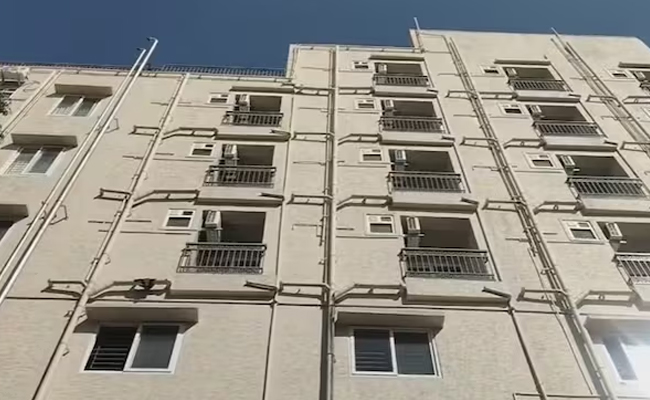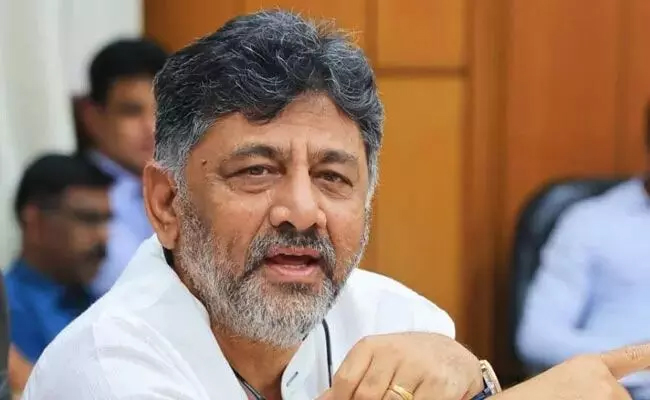Bengaluru: Taking note of the reports of the construction of a temple on the premises of Bangalore University, several activists have written an open letter to the Vice Chancellor of the University adding that the construction was against the rules set by the UGC Act 2000.
In an open letter written to the VC of the University, the forum has added that the UGC Act 2000 bars educational institutions from having religious structures on campus, and despite this, a temple is reportedly being constructed in violation of this law in the Bangalore University premises.
The forum has also expressed shock over the development as the temple is being constructed on the premises of the university under the watch of the VC.
“The focus should be on setting up libraries and research centers on the university campuses not temples, churches, or mosques of any religion. We should construct what is required for the overall development of the students.” The letter stated.
“In your administration, the construction work of a temple is underway unnoticed by you and under the watch of police. Hence we are questioning your position. It is unfortunate that Bangalore University is in news for this reason.” It further told the VC.
The letter further added “Crematoriums have already been constructed on the premises of Bangalore University. Students are also claiming that there are tens of temples and marriage centers.
“What the students need is libraries, not fancy churches and mosques. As the head of the syndicate that runs the university administration, you have a huge responsibility. We are confident that by being in such a position you will adequately handle the basic objectives of the University without giving rise to any kind of controversy.” It added.
Earlier, the students and staff members of the Bangalore Agricultural University broke out and protested against the government's move to build a biotechnology park on the campus. We want to bring the matter to your notice that the government has withdrawn from its decision, the letter asserted.
“In this regard, the Honorable Vice-Chancellors should take this matter seriously and not give a chance to any government or non-governmental organizations behind the construction of this temple, if necessary, they should also consider taking legal measures to fix the issue,” the letter added.
The letter was signed by activists HM Venkatesh, HG Ramesh, CP Thippeswamy, MG Vasudev Murthy, Pradeep Mendonca, and Handralu Nagabhushan
Let the Truth be known. If you read VB and like VB, please be a VB Supporter and Help us deliver the Truth to one and all.
New Delhi (PTI): Former Prime Minister H D Devegowda on Monday said the Opposition parties would "suffer" if they continue to raise allegations of "vote chori" and create suspicion in the minds of voters by blaming Prime Minister Narendra Modi-led government.
Participating in a discussion on election reforms in the Rajya Sabha, he criticised the Opposition for making a mockery about the Prime Minister "in the streets and on the public platform".
"This (India) is a very big country. A large country. Congress may be in three states. Remember my friends please, by using the words 'vote chori' you are going to suffer in the coming days. You are not going to win the battle," Devegowda said, referring to the Opposition members.
He asked what the Opposition is going to earn by "blaming Narendra Modi's leadership and creating a suspicion in the mind of the voters" through the claims of "vote chori".
"What has happened to their minds? Let them rectify," Devegowda said.
ALSO READ: Search operation ends in Anjaw truck accident, 20 bodies recovered
The former prime minister said that during his over seven decades of public life, he has never raised such issues of vote theft despite facing defeat in elections.
He also cited a letter written by the then Prime Minister Jawaharlal Nehru regarding inclusion of "18,000 votes" (voters) in Kerala.
"Why I am telling this (because) during the Nehru period also, there were certain lapses in the electoral system," said Devegowda, who was the prime minister between June 1, 1996 and April 21, 1997.
He said that the Congress party faced defeat in the recent Bihar elections despite raising the issues of mistakes in the electoral rolls.
"What happened after that even after so much review (of voters list). Think (for) yourself! You got six MLAs," the senior Janata Dal (Secular) leader said.
Devegowda questioned the Opposition as to why they want to make allegations against the prime minister on the issue of the voters list?
"Election Commission is there. Supreme Court is there. The Election Commission has given direction to all the state units to rectify all these things," he said.
Devegowda said people of the country have full confidence in Narendra Modi's government and it will come back to power after the next Lok Sabha elections as well.
K R Suresh Reddy, Bharat Rashtra Samithi (BRS) party's Rajya Sabha member from Telangana, said that electoral reforms are the backbone for a healthy democracy.
He said a large and diverse nation like Indi needs clean electoral rolls.
Asserting that strict re-verification should not become a mechanism for exclusion, Reddy said no eligible voter should lose their right to vote simply because accessing paperwork is difficult.
He said while the concern definitely is on the voters' exclusion, "we should also be equally concerned about the percentage of voting."
"What is happening in voting today? Once the election ends, the drama begins. The biggest challenge that the Indian democracy has been facing in spite of two major Constitutional amendments has been the anti-defection. Anti-defection is the name of the game today, especially in smaller states, especially where the legislatures are small in number," Reddy said.
The senior BRS leader suggested creation of a parliamentary committee "which would constantly look into the defection" and "ways and means to cutting that".
AIADMK's M Thambidurai raised the issues related to election campaigning.
ALSO READ: National Herald case: Shivakumar to seek time next week to appear before Delhi police
"Election campaigns are one of the important election processes. In that, political parties must be given the proper chance to campaign," he said and cited problems faced by his party in Tamil Nadu in this regard.
Thambidurai said political parties were facing hardships in Tamil Nadu to conduct public meetings and to express their views to the public.
YSRCP's Yerram Venkata Subba Reddy stressed on bringing electoral reforms at both the state and national levels.
He also suggested replacing Electronic Voting Machines with paper ballots in all future elections.
"EVM may be efficient but can't be trusted. Paper ballot may not be efficient but can be trusted. You need trust in democracy," Reddy added.

